eXtensions - Thursday 16 May 2024
By Graham K. Rogers
![]()
The Faculty of Engineering, Mahidol University, held its 5th Maker Expo at the Prince Mahidol Hall, Salaya campus just outside Bangkok. These events are a way to highlight the Senior Year capstone projects with poster presentations and related output. After more formal speeches and a talk by a well-known personality, there were brief project pitching presentations in front of a fairly large audience. The posters were judged by a team of experts in the early afternoon.
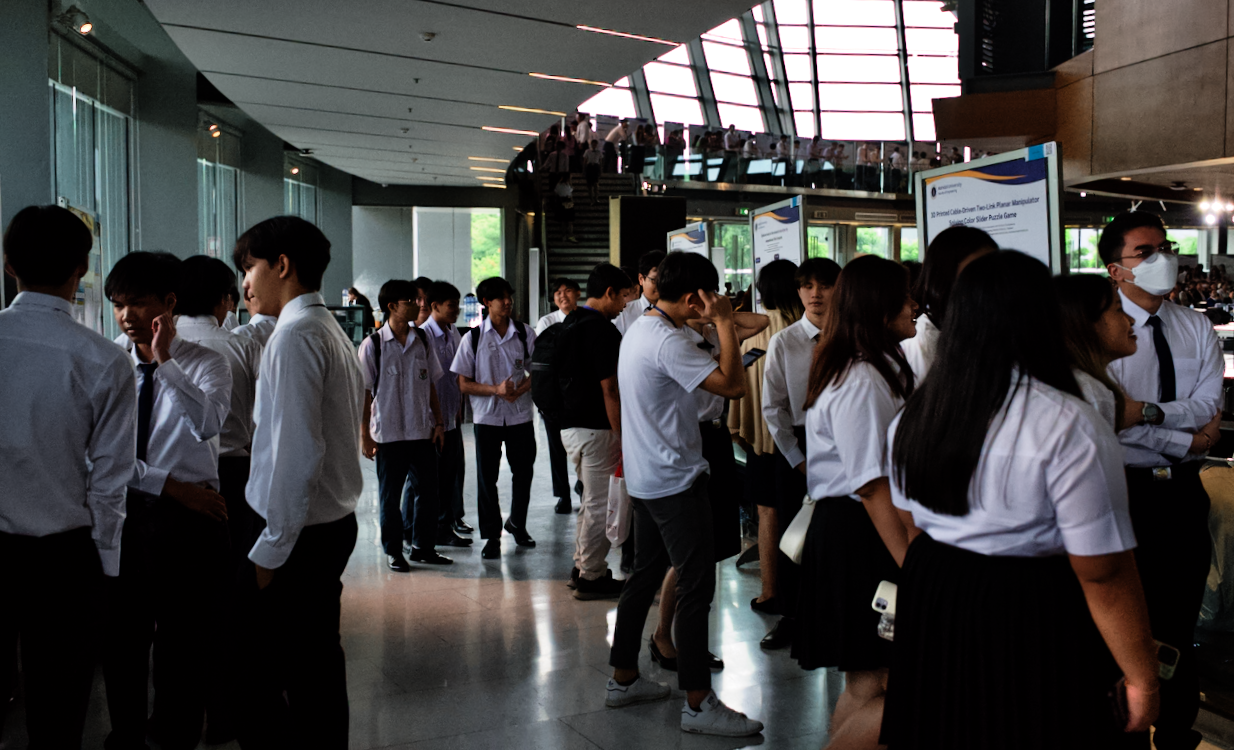
Earlier today the Faculty of Engineering, Mahidol University highlighted the work of senior year engineering students on their capstone projects with poster presentations at the Prince Mahidol Hall, located on the Salaya Campus of Mahidol University. The capstone project is the focus of all the class learning over 4 years using a project to demonstrate the ability of the students. The event began with some formal introductions: a video about the Faculty; opening remarks by the Dean, Dr Thanapat Wanichanon; and a speech by Deputy Dean, Dr Ittichote Chuckpaiwong. This was followed by an inspiring talk from Thai TV and social media personality, Dr Wit Sittivakeen. During his talk, at one time he spoke as if directly addressing the students themselves: work is hard, and the only way to succeed is by working hard; the real world is different [from the classroom and exams] and a whole lot harder.
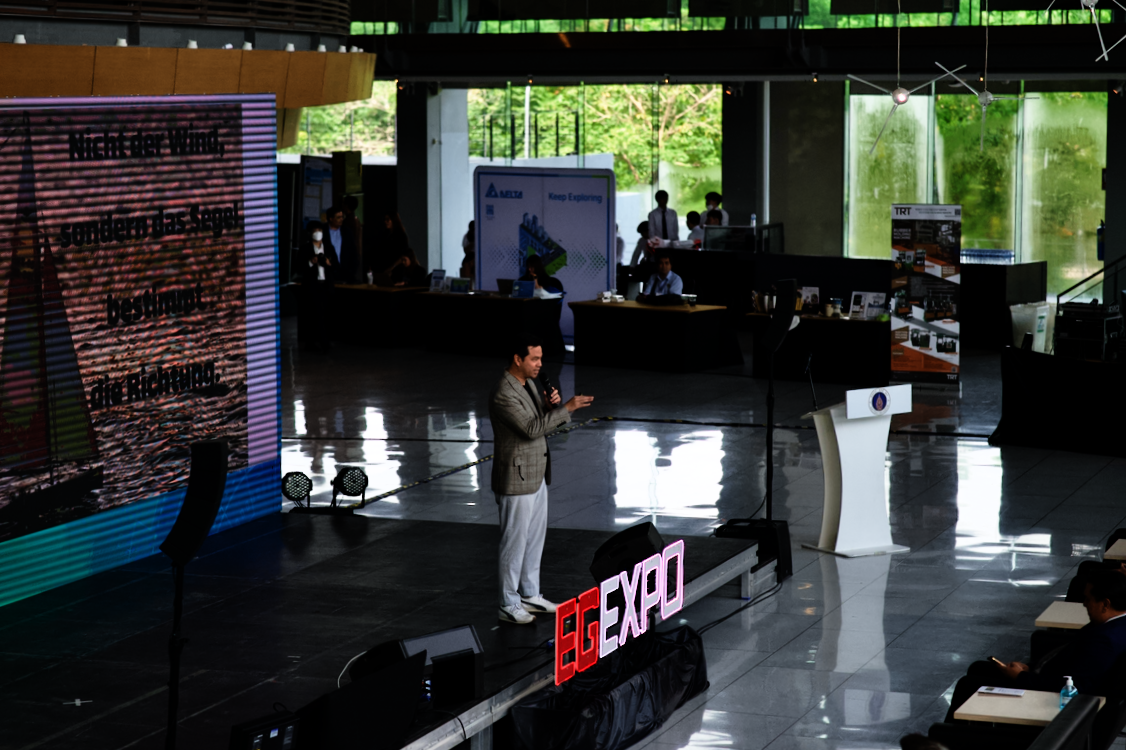
|
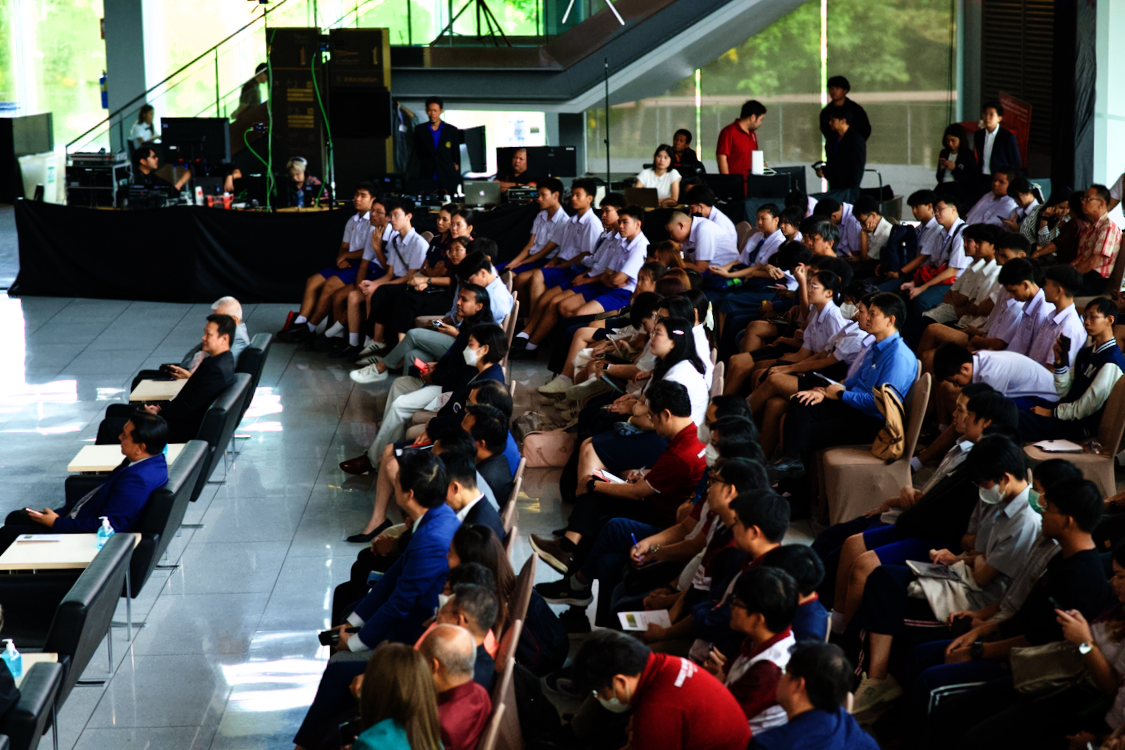
|
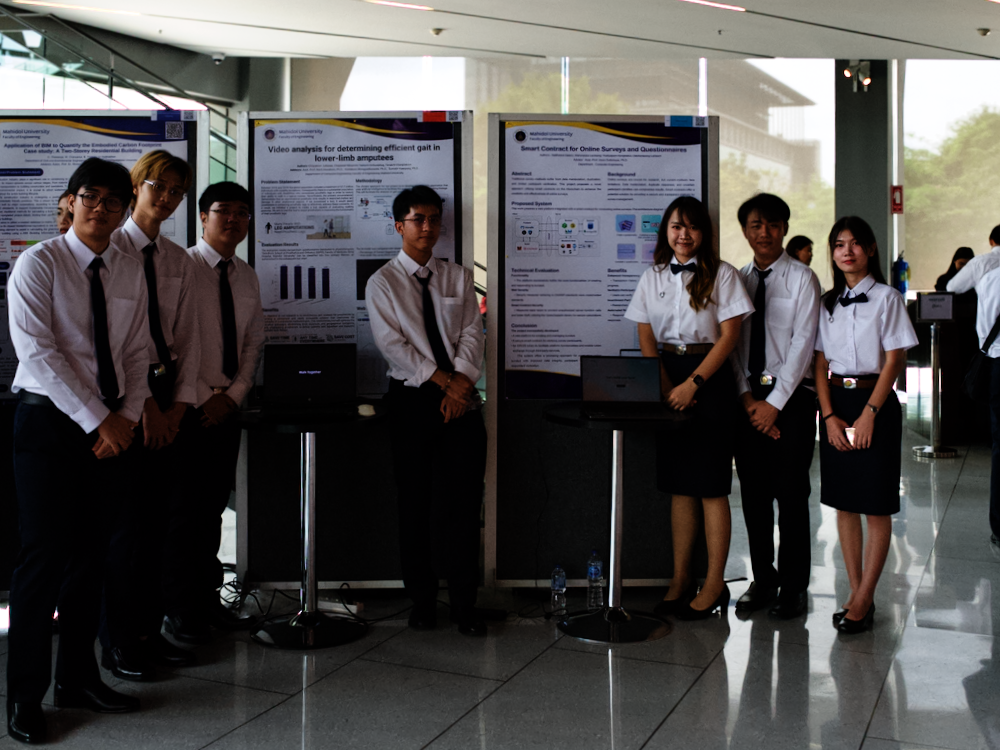
|
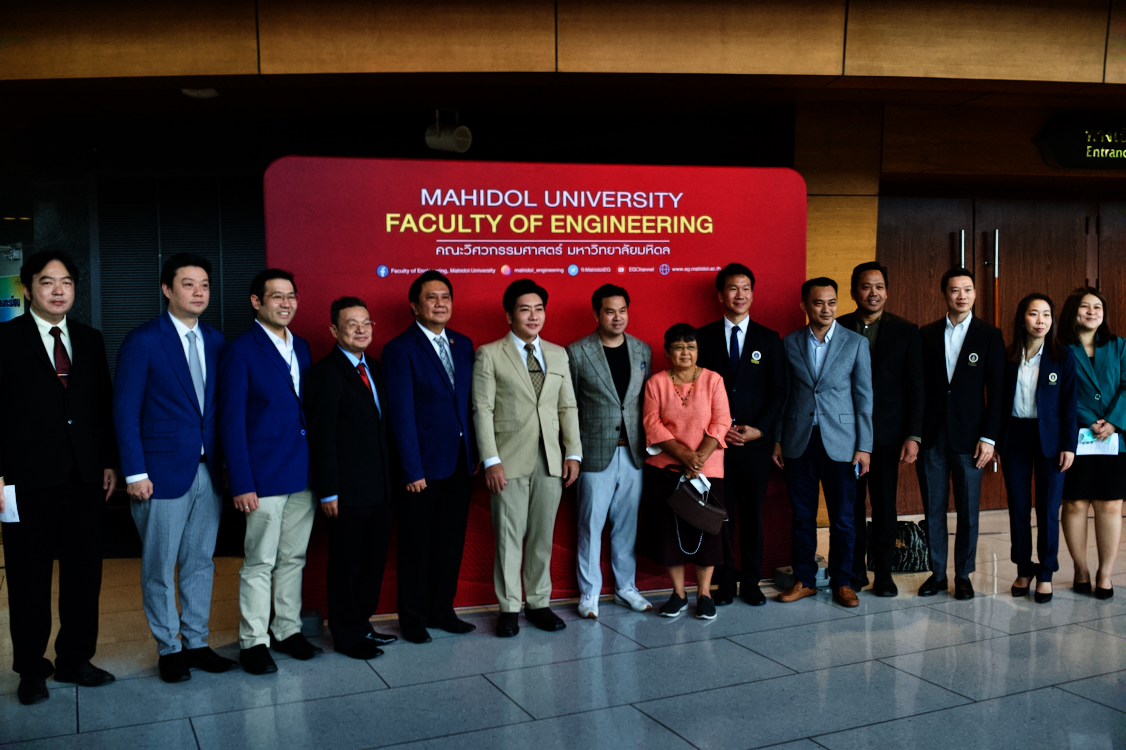
|
The poster displays had been set out the day before: on the ground floor, to left and right of the stage; and on the narrow mezzanine. These areas were already crowded with students from the university and from high schools who are interested in learning about technology. As this was the opening day for high schools in Thailand, it was good to see so many of these students attending. There was also a smartly-dressed party of some 25 students (plus 2 staff members) from Undiknas University in Bali, who were on a visit to the Department of Civil and Environmental Engineering.
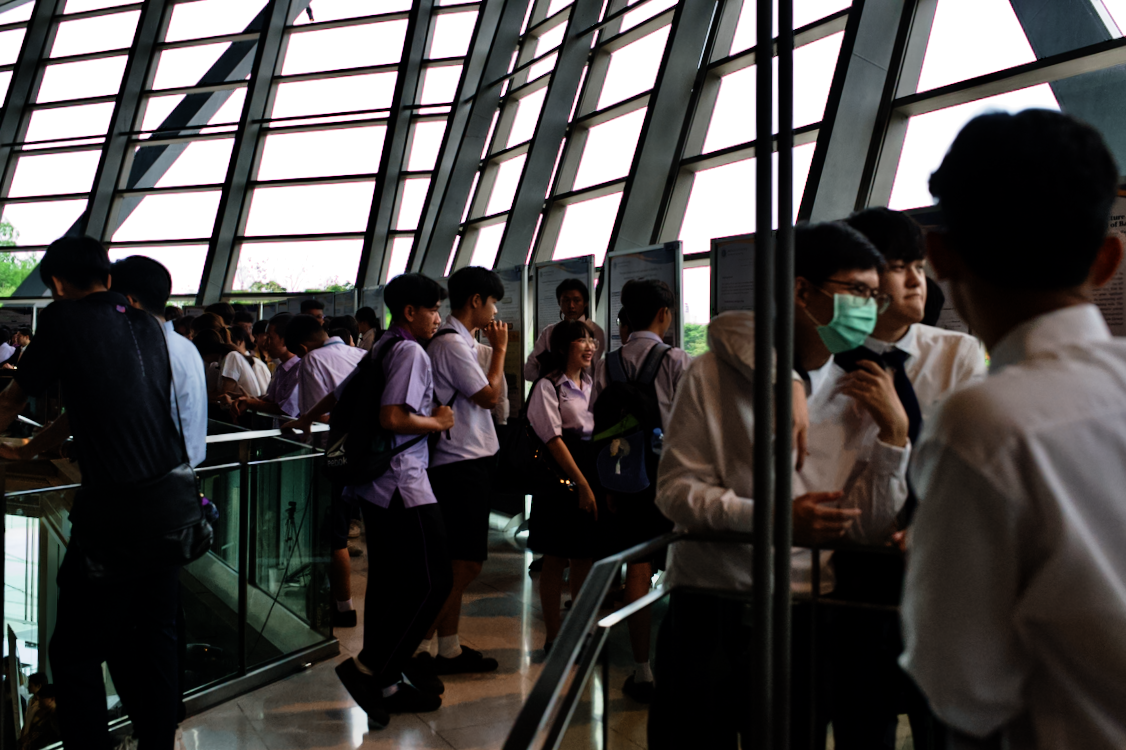
|
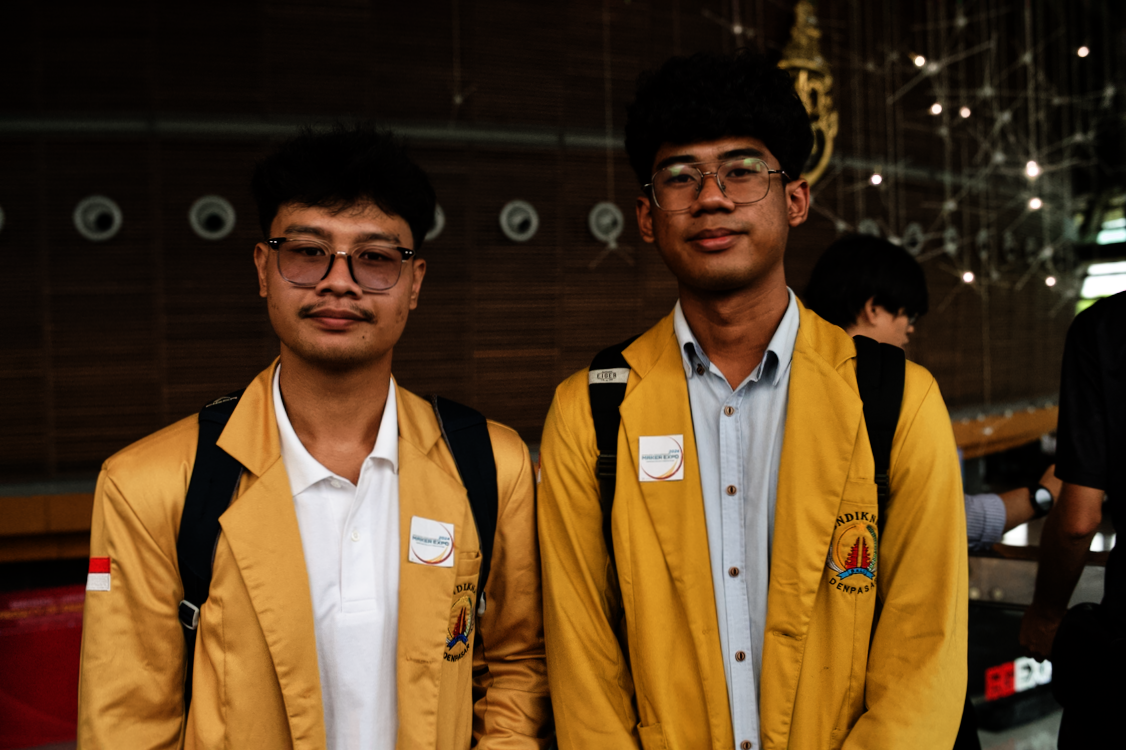
|
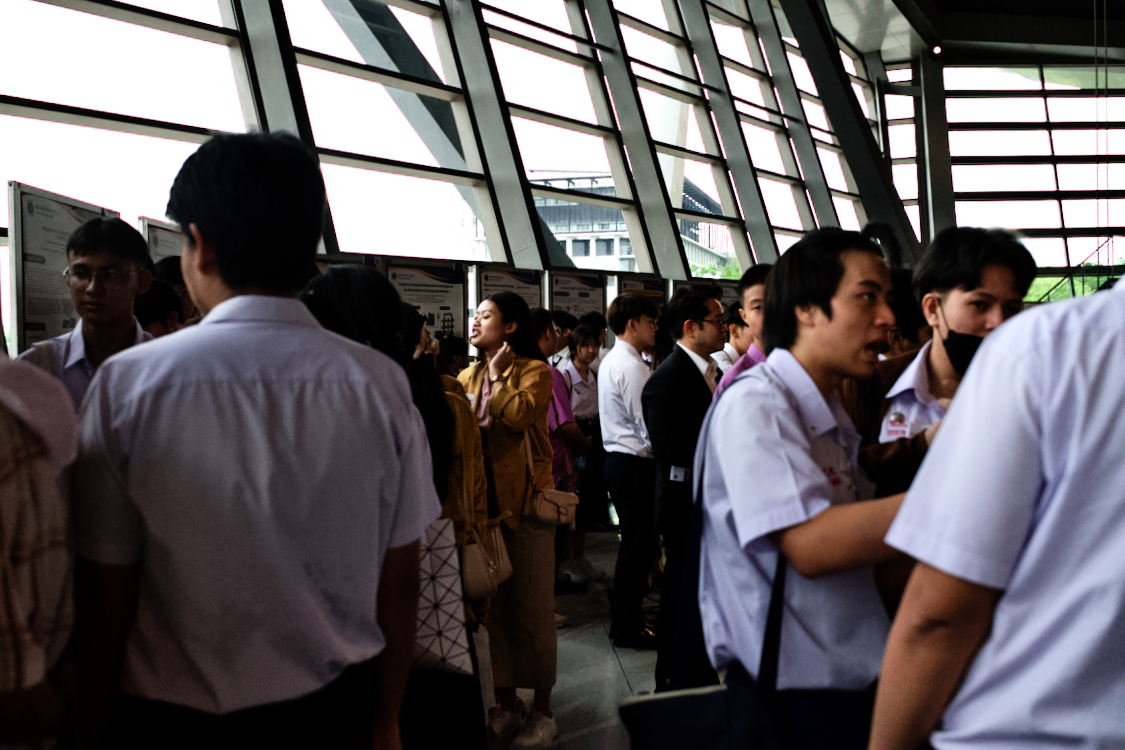
|
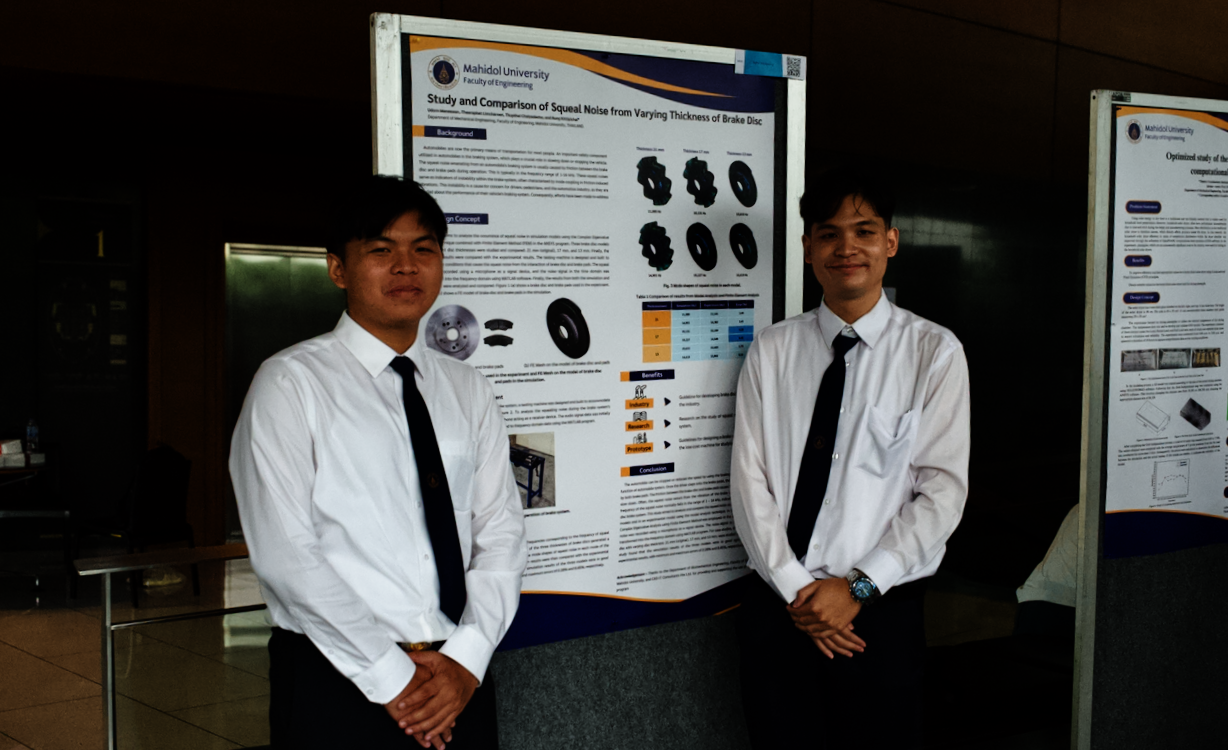
|
Following the early formalities, 14 groups of students - 2 from each of the 7 departments at the Faculty - made 3-minute presentations, pitching their project ideas to the relatively large audience in the hall, and to the judges who were drawn from industry and education. While these presentations were taking place, and throughout most of the day, the students standing by their posters explained the technology and answered questions from those attending the event.
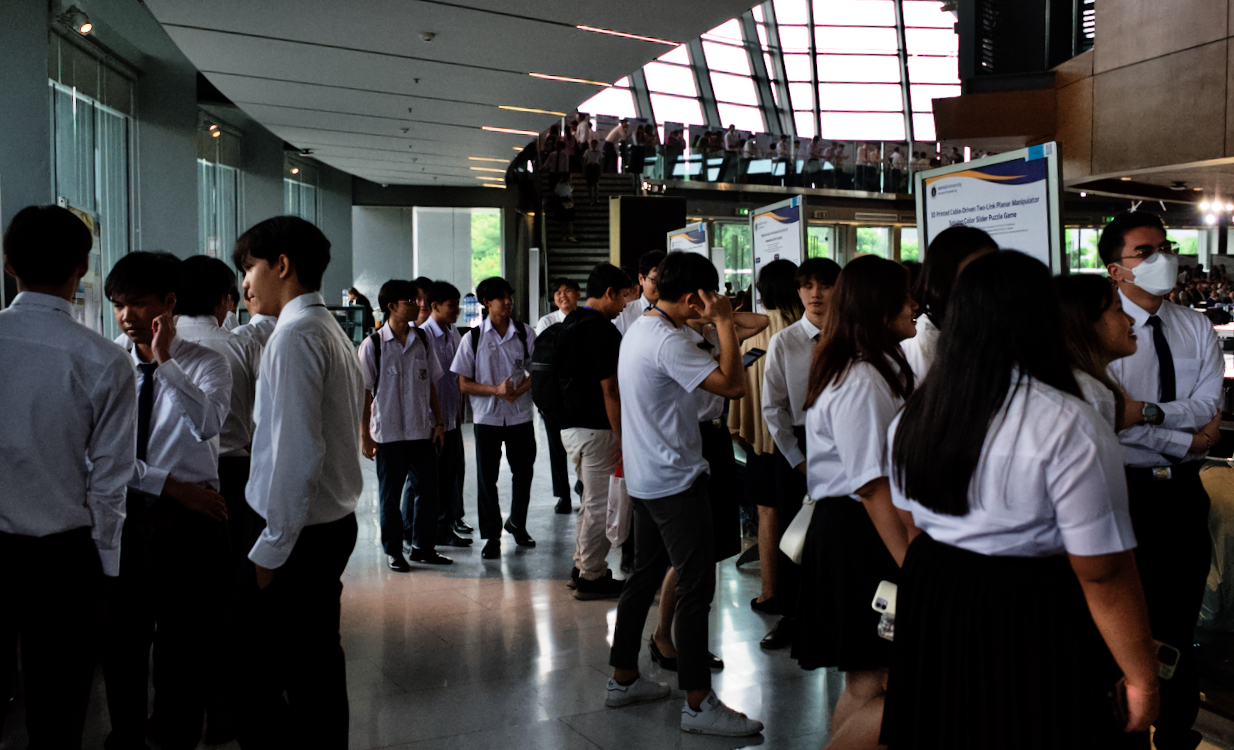
|
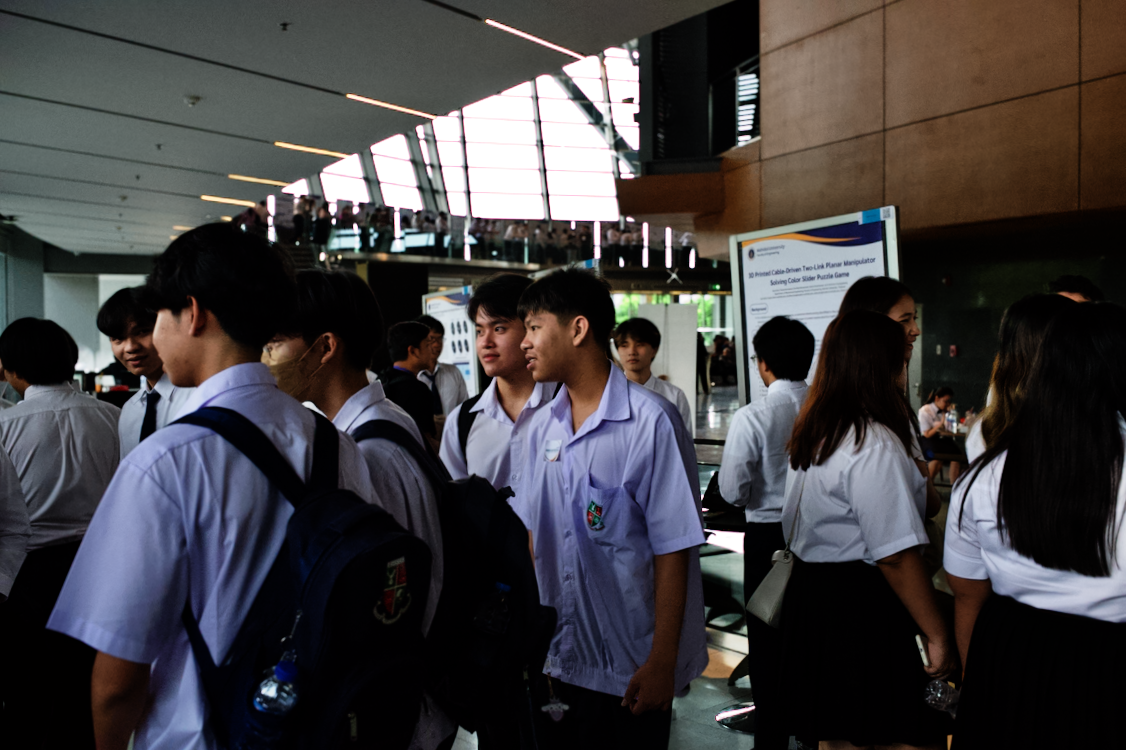
|
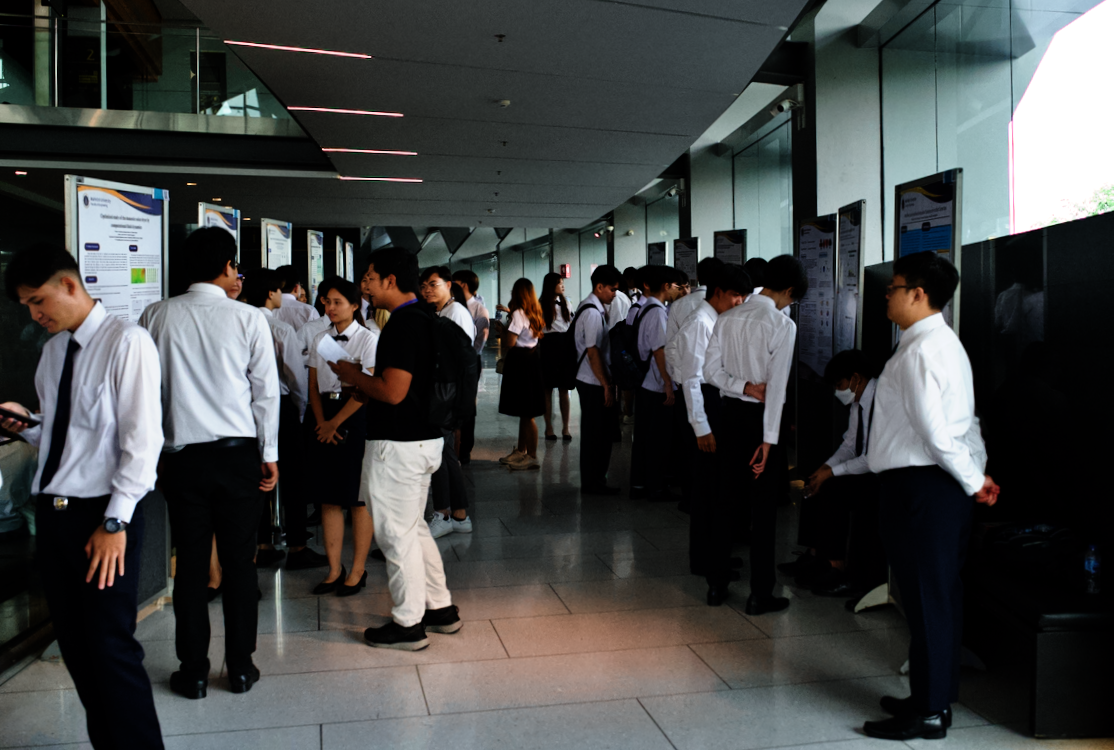
|
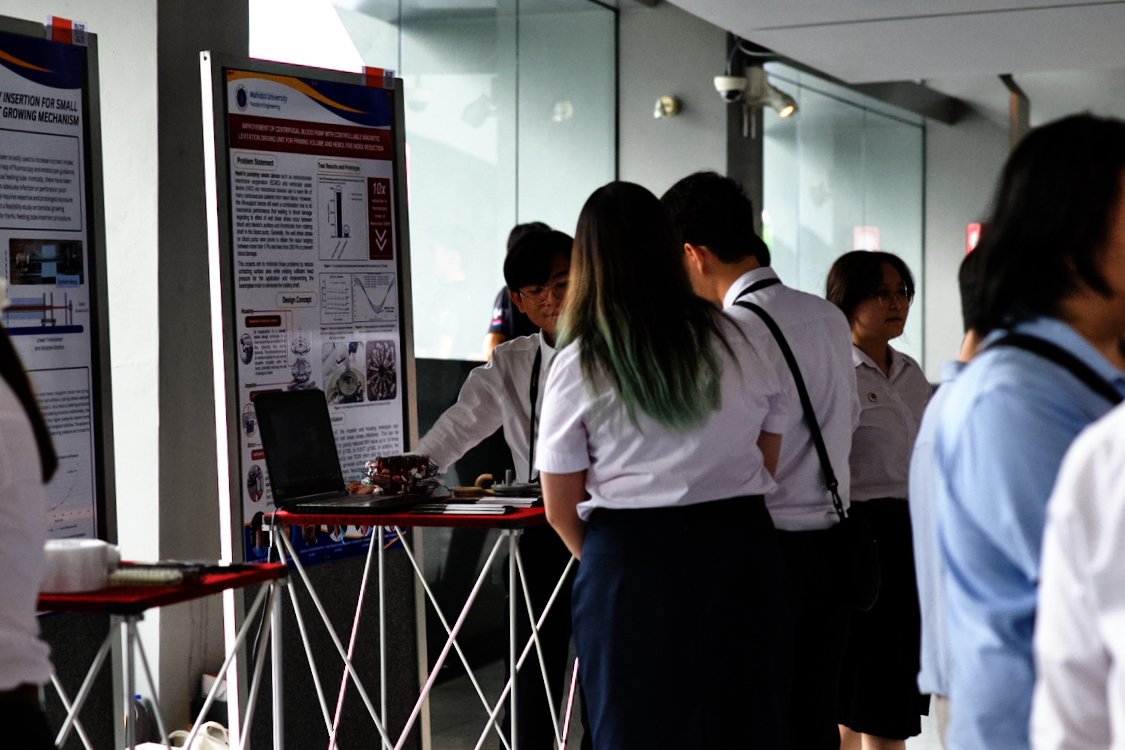
|
I saw several high school students in deep conversation with the poster groups. As is usual, the younger scholars were themselves mainly in small groups, so the interactions with the engineering students as they asked about the technology each poster depicted, led to some high-spirited conversations. The students standing by their posters also gave good explanations to those who were somewhat older, and it was clear that many of them had a good knowledge about the ideas they were discussing.
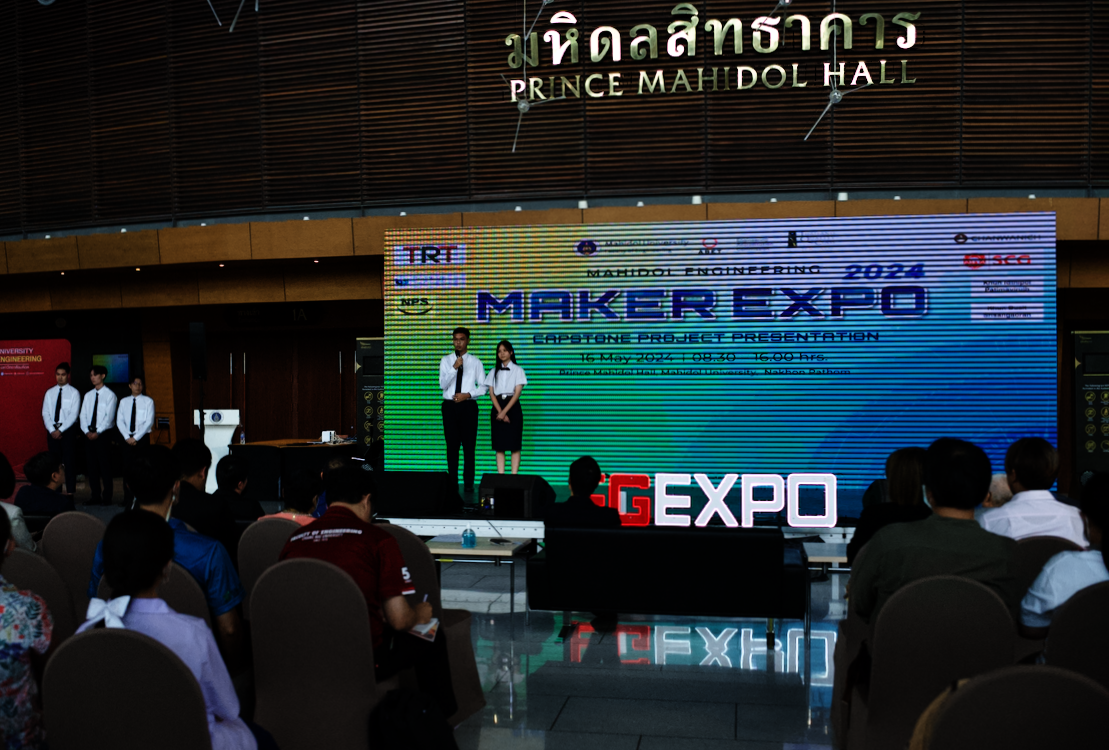
|
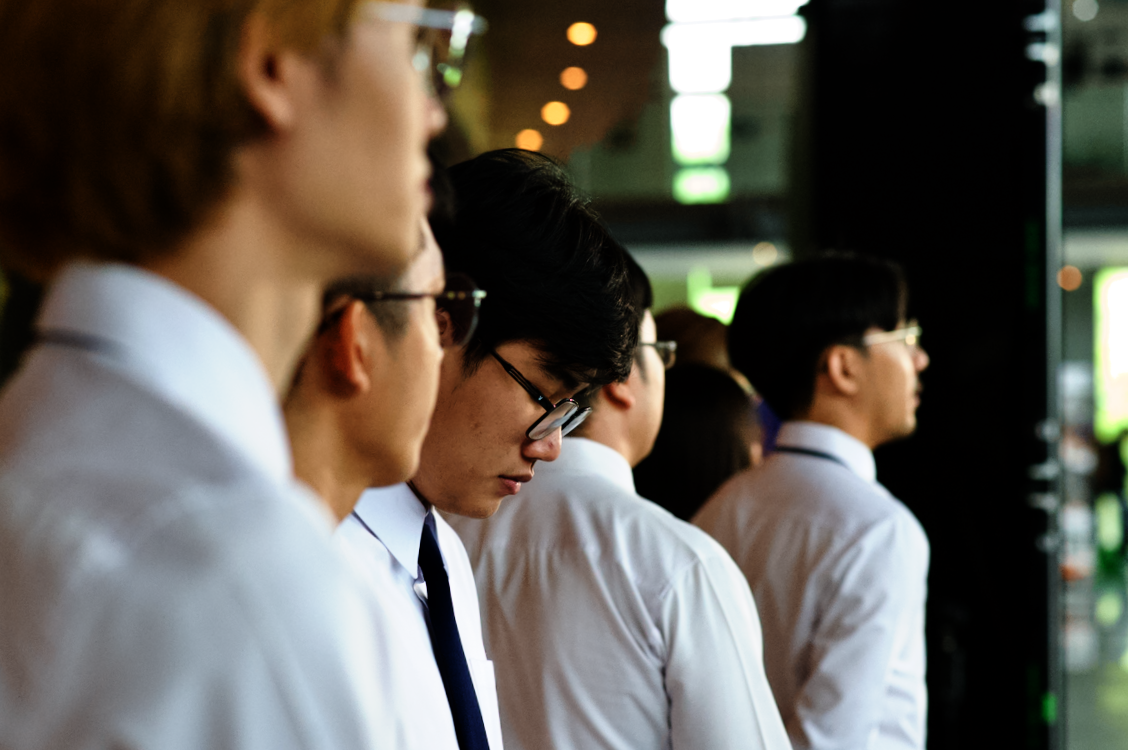
|
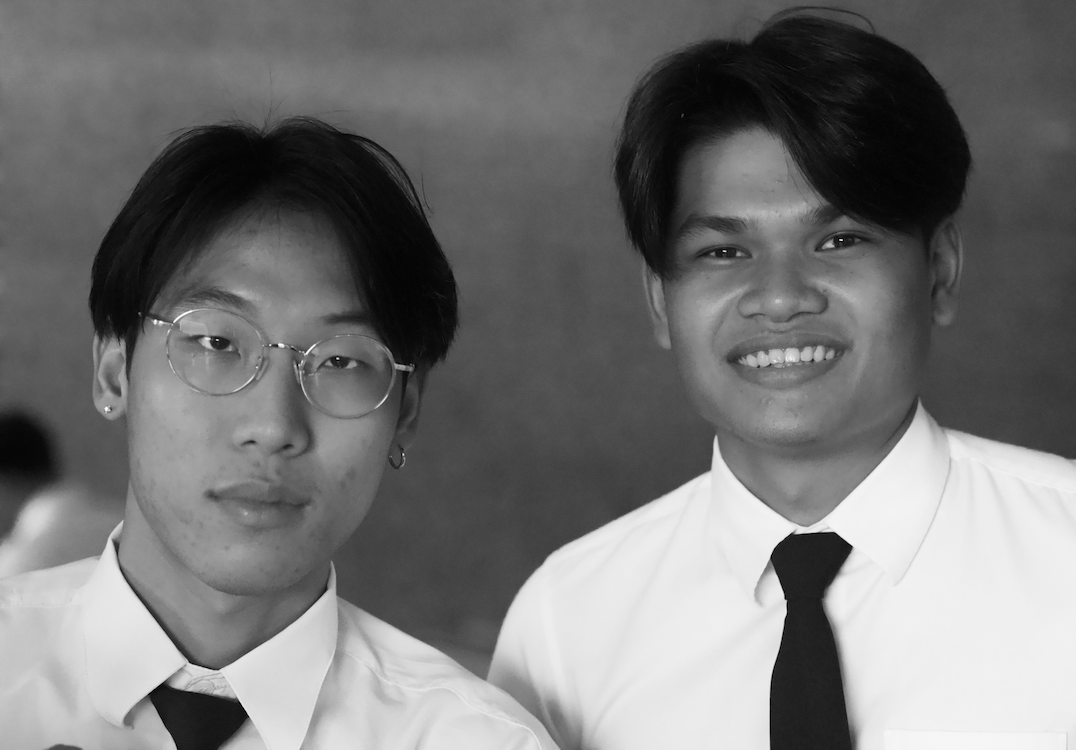
|
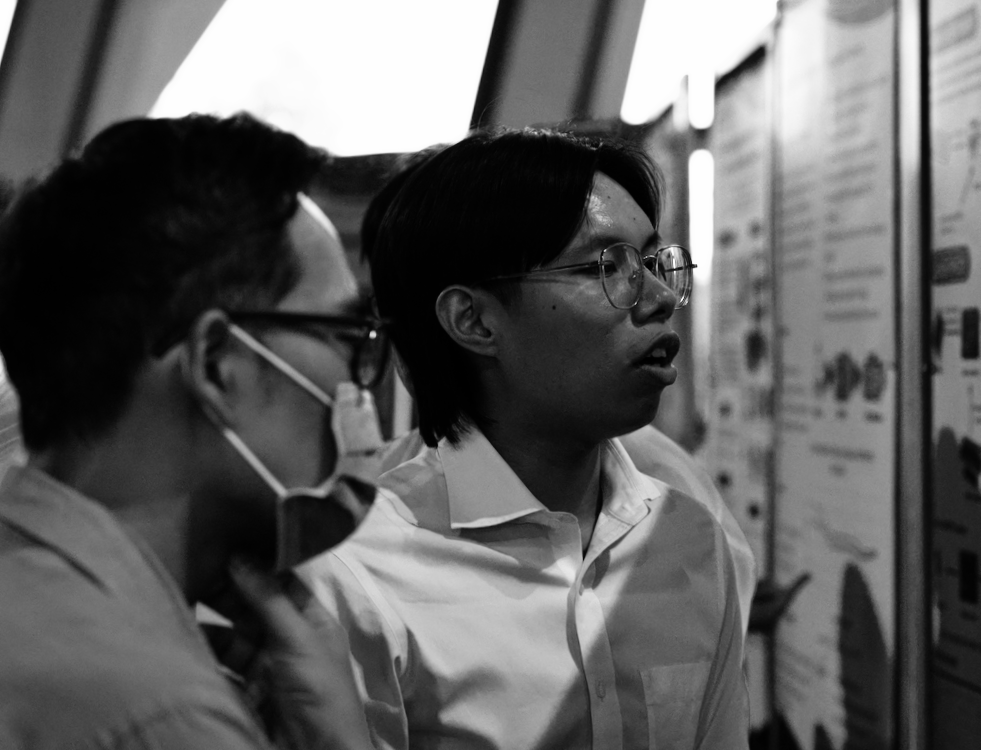
|
Like a normal academic poster presentation the posters were A0 (841 x 1189 mm or 33.1 x 46.8 inches). Most students had only worked with A4 output so visualizing the larger format itself was an exercise in reimagining their projects. The posters each had a problem statement (some with Background), the solution, methodology (including simulations and testing) and results as well as other information the group thought necessary to include, so there was some variety in the output on display. Some were highly-detailed. They showed the efforts made by these engineering students over the last 12 months (or more) to bring their work to fruition.
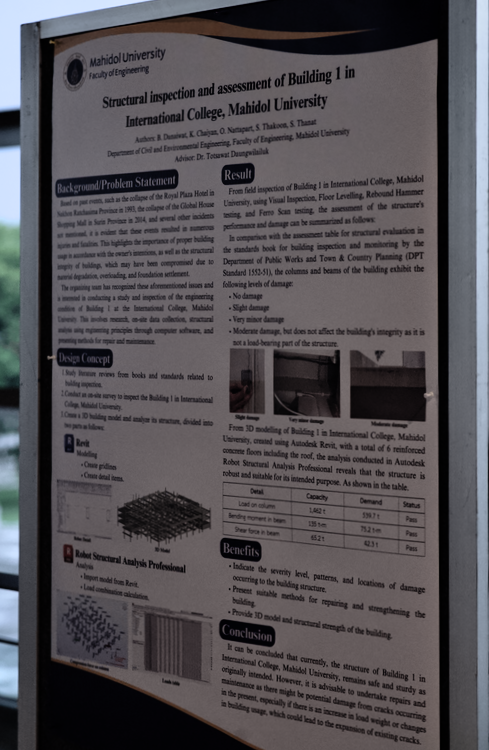
|
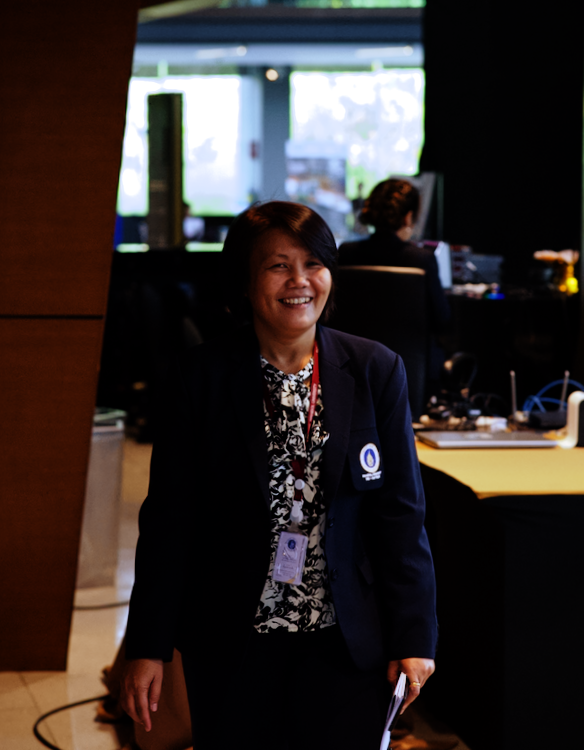
|
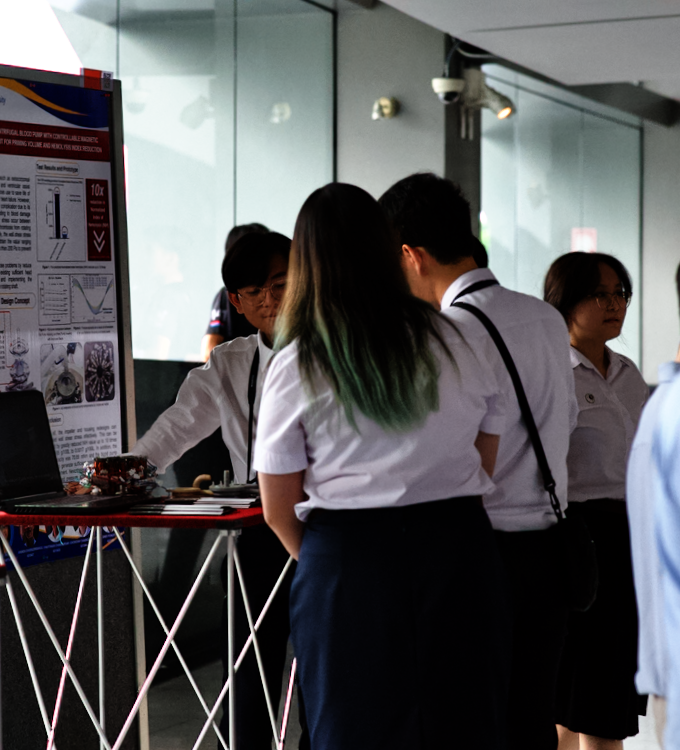
|
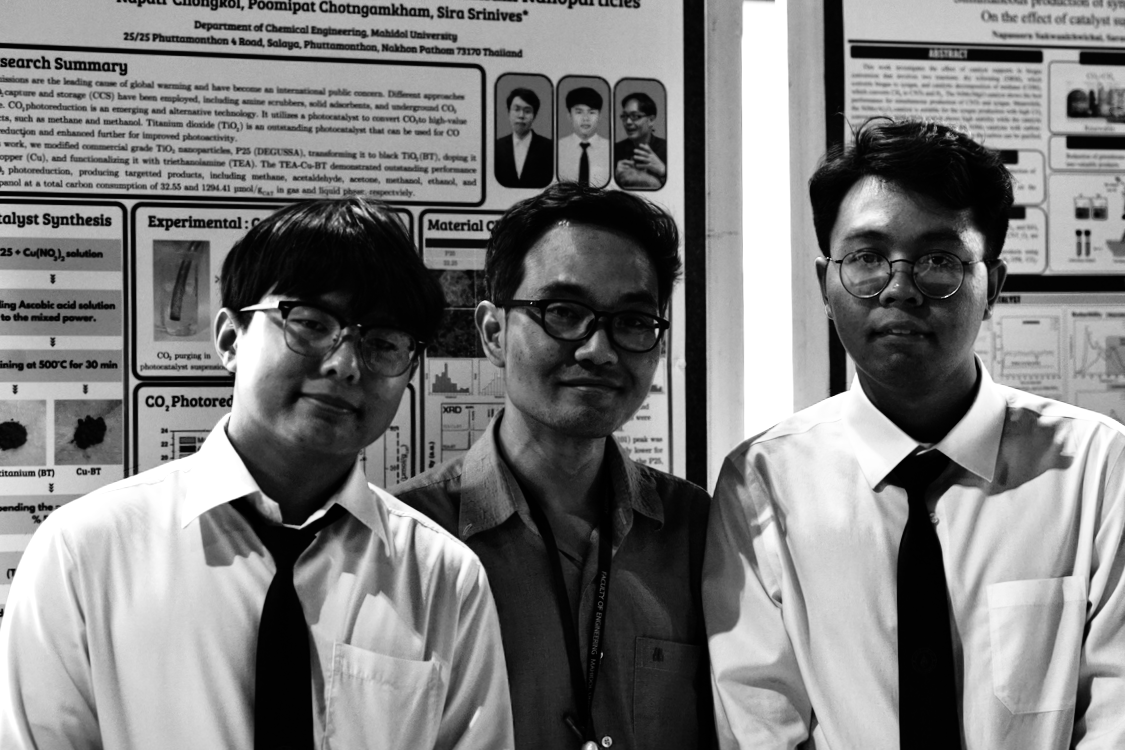
|
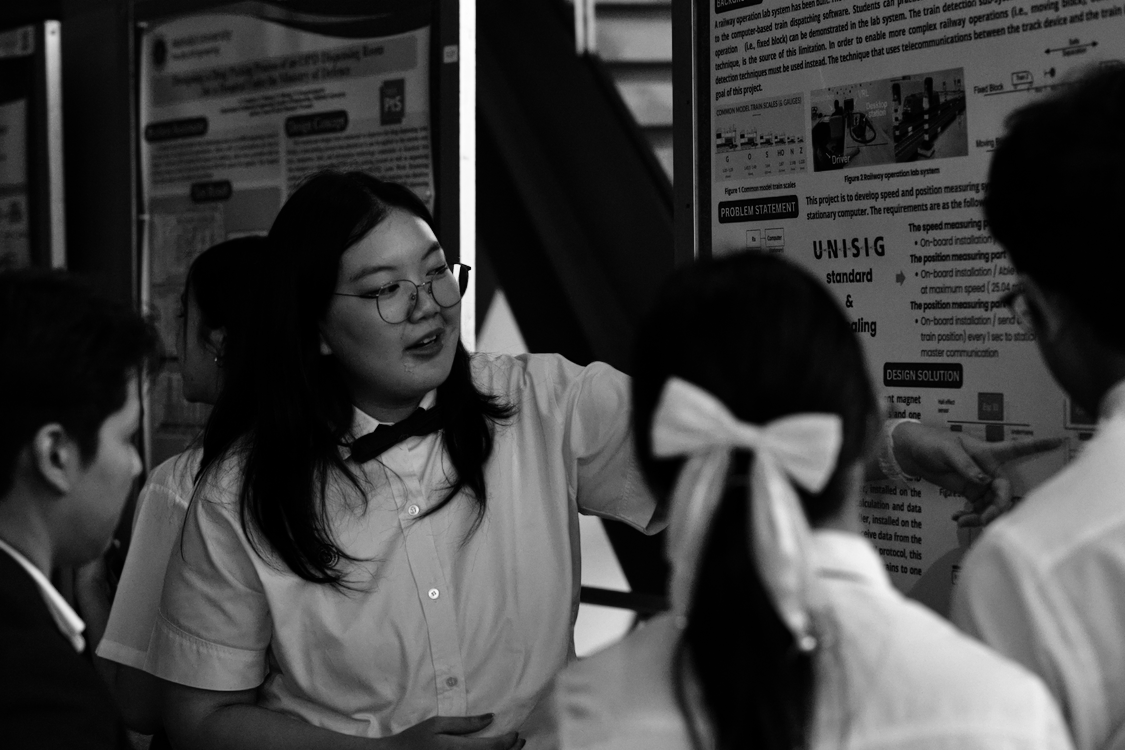
|
During the event I spoke to the Dean, Dr Thanapat Wanichanon who told me the Maker Fair was just one part of the learning we are able to give to our students. The capstone projects show them how to focus on soft skills. This lets the students feel more confident in their abilities to deliver their ideas to a wider audience. Making fuller use of their ideas gives them the experience of interacting with the real world. In the 4 years they are learning at the Faculty they gain knowledge in the classroom and this is the last step: to show people what they can do.
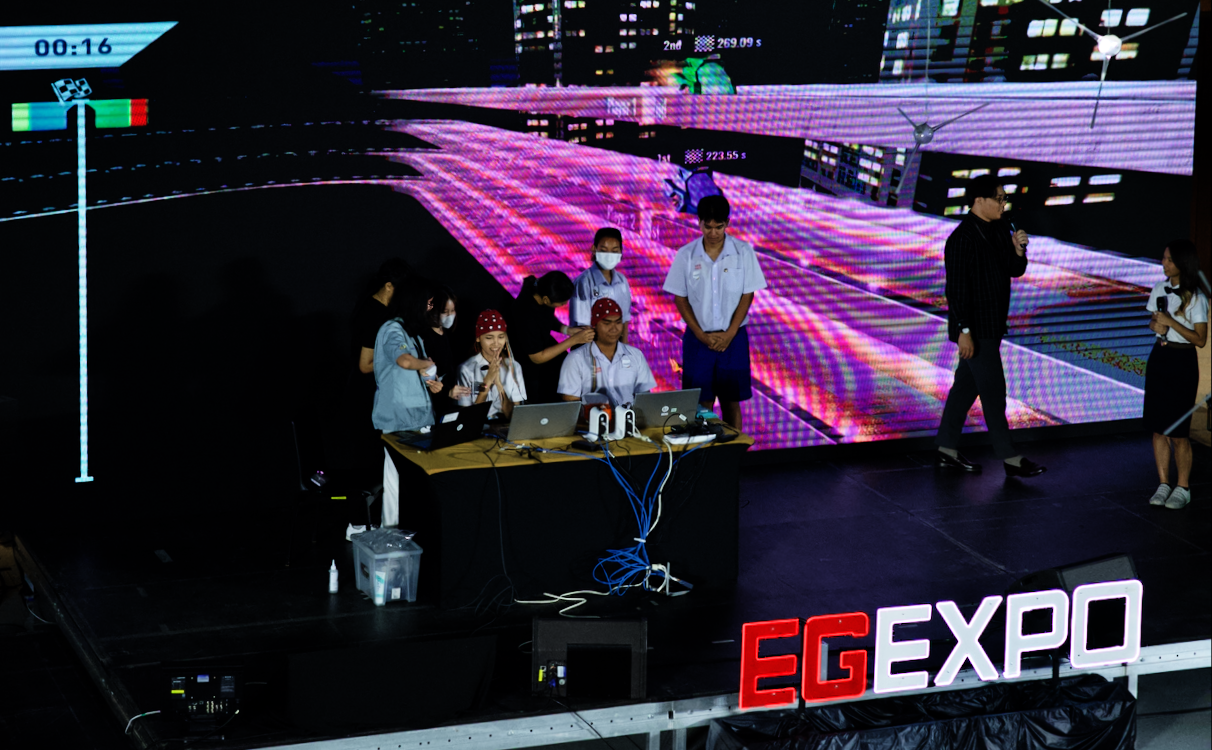
|
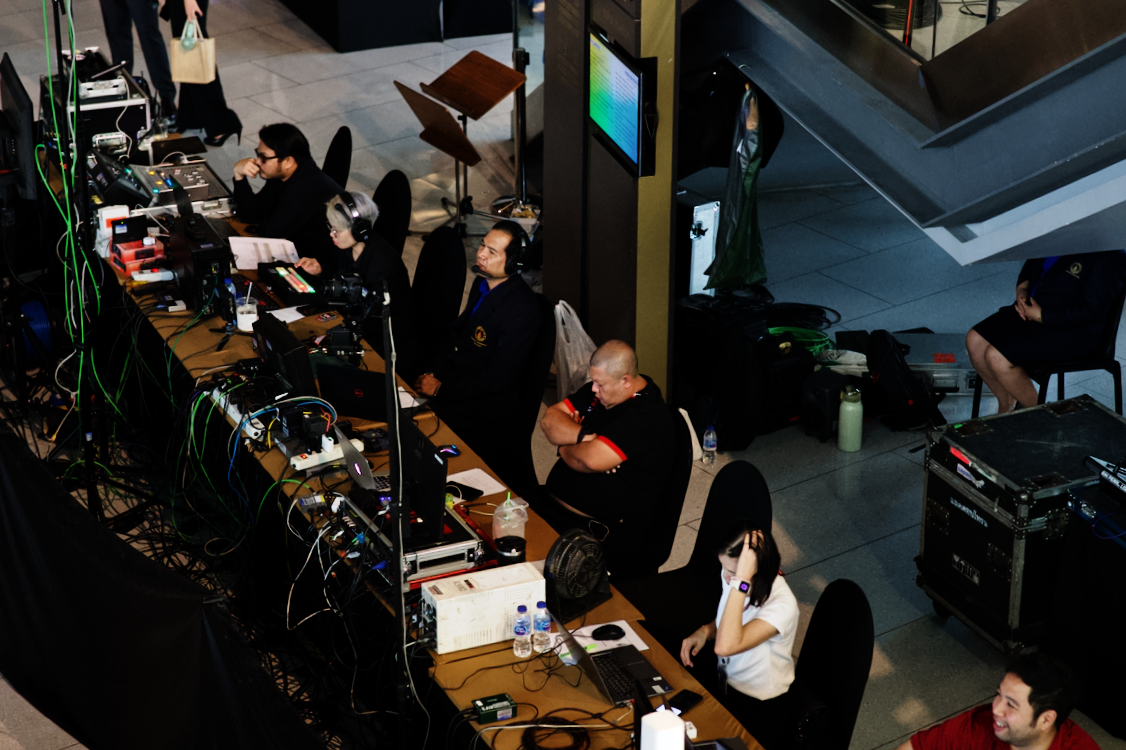
|
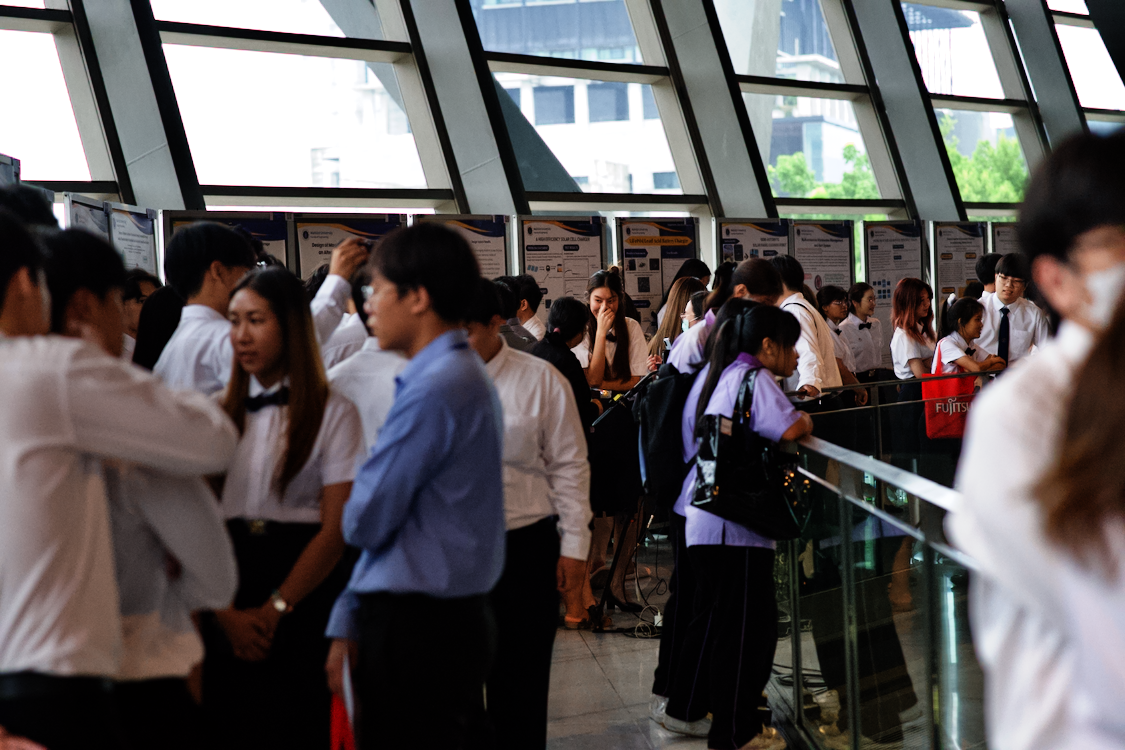
|
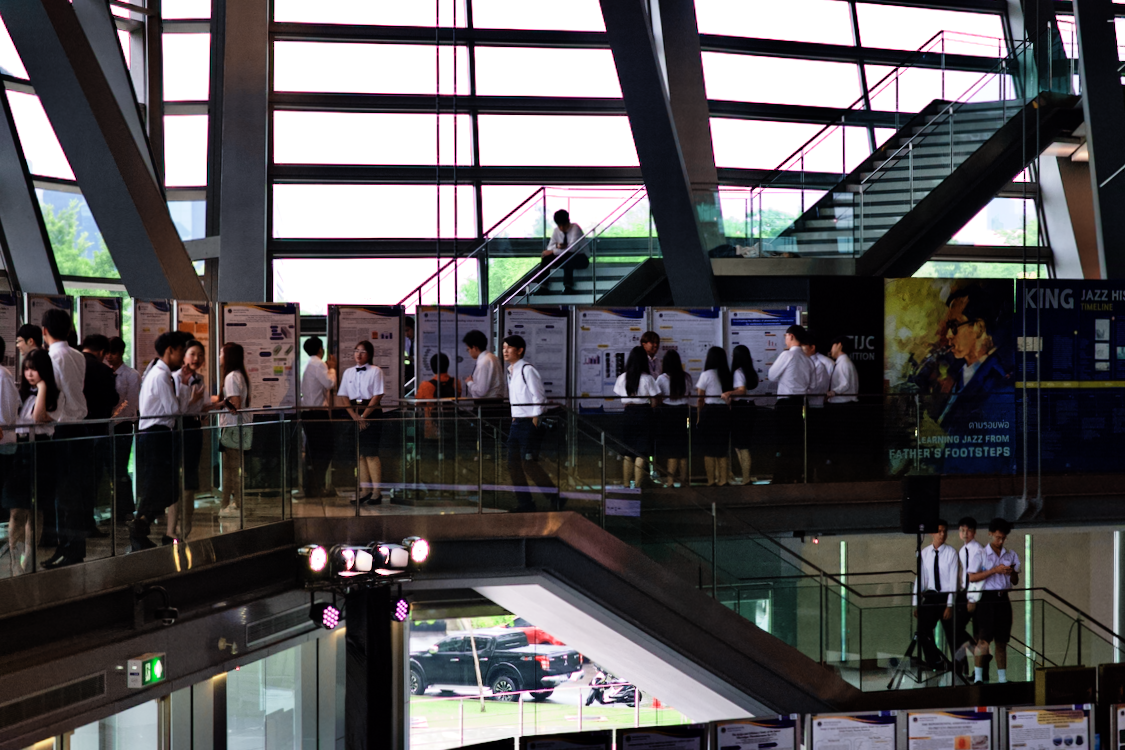
|
The event exposes the students (and the visitors) to an out-of-classroom experience that is part of the preparation for the next stage in their lives: the workplace in most cases; or further study.
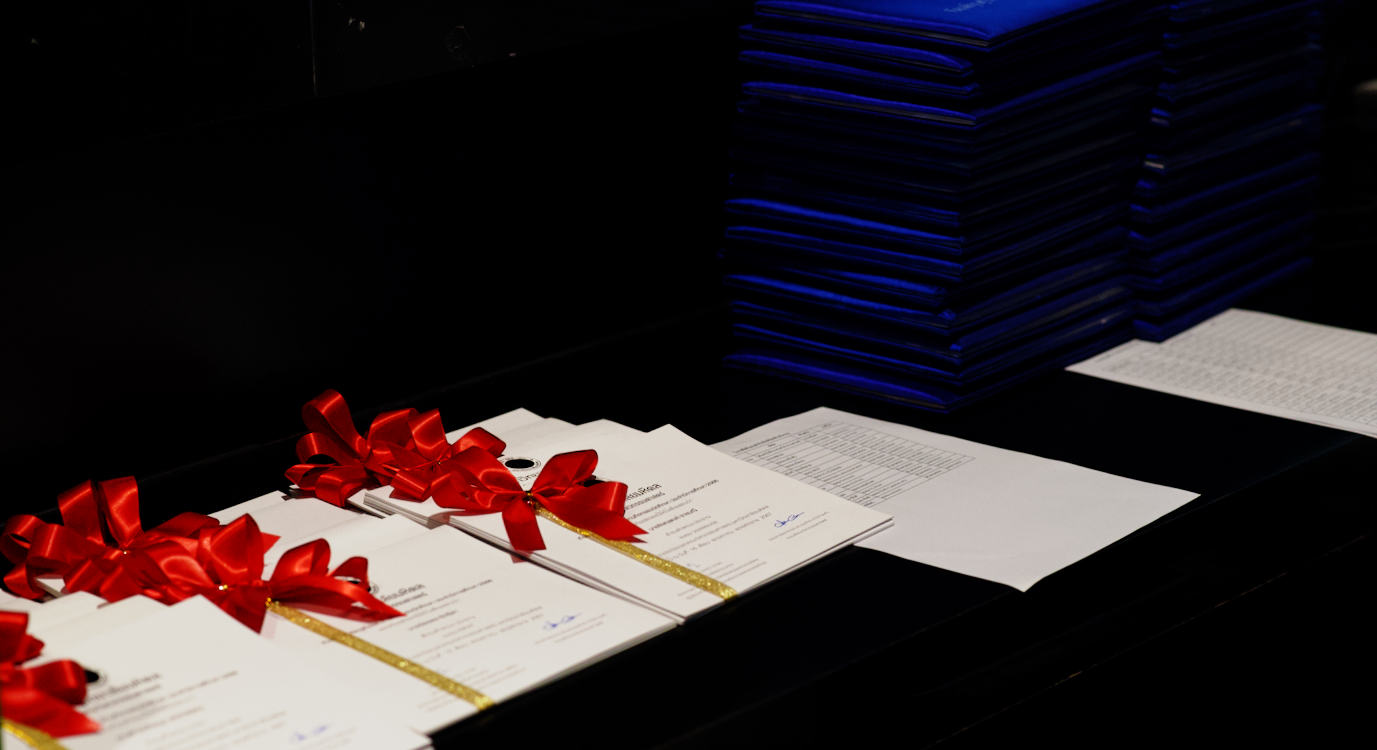
Graham K. Rogers teaches at the Faculty of Engineering, Mahidol University in Thailand. He wrote in the Bangkok Post, Database supplement on IT subjects. For the last seven years of Database he wrote a column on Apple and Macs. After 3 years writing a column in the Life supplement, he is now no longer associated with the Bangkok Post. He can be followed on X (@extensions_th). The RSS feed for the articles is http://www.extensions.in.th/ext_link.xml - copy and paste into your feed reader.

For further information, e-mail to
Back to
eXtensions
Back to
Home Page